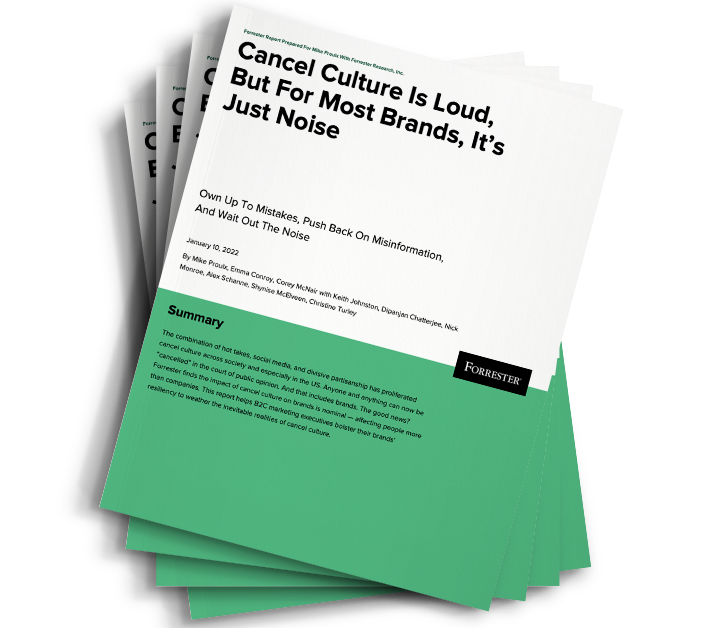Cancel Culture & What it Means For Brands
Cancel culture, though not a new phenomenon, continues to be a central point of discourse for business leaders charged with managing the intersection of reputation and business strategy.

In today’s world, brands must be prepared to navigate a dynamic society where the balance between risk and reward is more nuanced than ever before. As quoted in Forrester’s Cancel Culture research*, Weber Shandwick North America President, Joy Farber Kolo, shared “if you avoid meaningful marketing — business-relevant, culturally relevant, but meaningful — for fear of detractors, you create a far greater risk of not mattering to those who matter most.”
Learn more in the full report, available below through the end of April.

DOWNLOAD THE COMPLIMENTARY REPORT
By entering your email address, you agree to receive related marketing information in accordance with our Privacy Policy.
HOW WE CAN HELP
Today, business leaders and brands are expected to speak out on a growing range of issues — from social injustice to politics to product mishaps. They need to decide where to speak up and engage, where and when to refrain — as well as determine what is both brand relevant and business appropriate. Simply put, the role of business leaders has never been more critical or complex. Weber Shandwick brings together brand- and reputation-building, risk mitigating expertise — bolstered by deep analytics and cultural insights — to guide clients to lead in a time when transforming culture and influencing social progress is paramount.
*Cancel Culture Is Loud, But For Most Brands, It’s Just Noise, Forrester Research, Inc., January 10, 2022